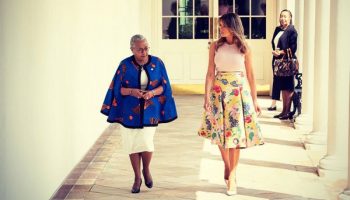- November 8, 2018
- Posted by:
- Category:

By PSCU
Kenya and China Thursday are expected to approve an MoU aimed at ending trade inequalities.
President Uhuru Kenyatta and his Chinese counterpart Xi Jinping will preside over the signing of the cooperation agreement.
The deal will factor imports and exports of animal and plant products to be traded between the two nations.
Kenyan and Chinese delegations held a formal discussion in Shanghai Wednesday to conclude the trade agreements ahead of signing.
Kenya was represented by Cabinet secretaries Monica Juma (Foreign Affairs), James Macharia (Transport), and Peter Munya (Trade).
Principal secretaries Betty Maina (Industrialisation), Chris Kiptoo (International Trade) and Harry Kimtai (Livestock) were present.
If successful, the deal will involve Kenya exporting avocados, mangoes, peas, beans, greengrams, flowers, vegetables, herbs, meat, hides and skins, bixa, nuts, gum arabica, myrrh, tea, coffee and honey to China.
Kenya’s main exports to China have been black tea, coffee and leather while the Asian economic giant exports various items ranging from domestic products to commercial.
The agreement, to be signed between the Ministry of Agriculture and China’s Customs Department, is a follow-up to the pact reached between the two states in March 2011.
For plants, the parties will undertake to cooperate on inspection and certification of plant products as well as provide a framework for managing pests and diseases.
Kenya and China will also work on building systems for surveillance, pest listing, risk analysis, reporting, as well as strategies to enforce quarantine measures.
The parties will also develop a framework for sharing information on livestock diseases; inspection of hatcheries, breeding centres, abbatoirs, dairies, and animal feeds.
Kenya and China will also agree on food inspection procedures, safety requirements, food traceability, and management of toxicity.
To guarantee this, each of the parties is expected to designate and fund competent authorities to oversee the trade flows between the two countries.
For Kenya, Kephis (Kenya Plant Health Inspectorate Service), Department of Veterinary Services, Ministry of Health, Kebs, and Pest Control Board will play key regulatory roles in the venture.
Trade CS Peter Munya will lead the Kenyan team in the signing before the team proceeds to Beijing for the initial trade negotiations meeting.
A review of tariffs for Kenyan exports to China will be deliberated upon.
“The parties undertake to give priority to the evaluation of the other party’s application for the inspection and quarantine of food and agricultural products in accordance with the national laws and regulations and in keeping with international regulations and standards,” a draft of the MoU obtained by the Star states in part.
“Kenya will identify priority products to be fast tracked in terms of risk analysis and determination of equivalence measures for assuring safe trade.”
The deal also posits that the parties undertake to collaborate in crop improvement and exploitation in trade.
State House spokesperson Kanze Dena said the deal is huge for the country as it will see Kenyan products attain the ‘country of origin status’.
“Today, most of our key exports into China enter the market through transshipment via Hong Kong and other jurisdictions that don’t have tariff barriers with China,” Dena said.
She said the country’s focus shall not be purely on volume of products but also on quality.
The development is a result of talks between President Kenyatta and Xi, a conversation that arose from Kenya’s concern about China’s take on the trade partnership between them.
















